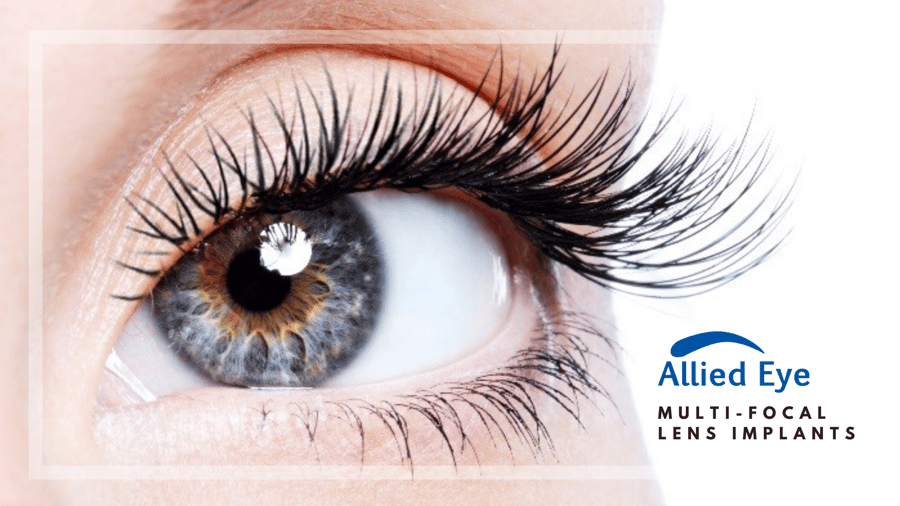A multi-focal intraocular lens (IOL) is a lens surgically implanted into the eye to replace a natural lens. It is made of clear plastic and about one-third the diameter of a dime. Multi-focal IOLs are often used to replace lenses that have been damaged by cataracts. This age-related condition is the leading cause of reversible vision loss in America today.
As the name indicates, multi-focal IOLs allow you to focus at any length, like the eye’s natural lens. The majority of people who receive these type of implants are able to give up wearing glasses or contacts after surgery.
Multi-focal lens implants are a good choice for most patients in need of intraocular lens replacement. Keep reading to learn more about their benefits and why Dr. Dennis Matzkin of Allied Eye prefers this type of implant.
Why does Dr. Matzkin prefer multi-focal lenses over mono-focal lenses?
Traditional lenses used in cataract surgery were mono-focal, meaning that they only provided clear vision at one distance. This meant that patients still needed to wear corrective lenses to see clearly at every distance.
“I prefer multi-focal lenses because I’d much rather my patients have the vision they had at 30 years old instead of the vision they had at 60 or 70, before cataracts developed,” said Dr. Matzkin.
“Your natural lens can normally focus equally well near or far, especially when you’re young,” he said. “Multi-focal lens implants allow you to seamlessly focus at any distance and can even correct astigmatism.” (Astigmatism is an imperfection where the eye is shaped more like an egg than a round ball.)
Are multi-focal IOLs only for cataract patients?
Thankfully, you don’t have to wait for cataracts to form before taking advantage of this innovative procedure. If you’re an adult who relies on prescription lenses to see clearly, regaining the vision of your youth can be life-changing. Dr. Matzkin frequently performs elective multi-lens IOL surgery on adults without cataracts.
“Our multi-focal lens surgery is better than LASIK,” said Dr. Matzkin. “People who have LASIK at the age of 40 or 45 will still need help to focus up close.” Choosing a multi-focal lens implant almost completely eliminates the need for reading glasses after surgery—whether it was an elective procedure or for cataract correction.
“I recently performed an elective multi-focal lens procedure on a patient who works as an ultrasound tech,” Dr. Matzkin said. “Her job required her to switch frequently between seeing up close and farther away, and she was tired of constantly putting on and taking off glasses all day. She has been quite pleased with her results.”
How does Dr. Matzkin perform multi-focal lens implant surgery?
Dr. Matzkin uses the Alcon LenSx Laser to perform lens implant surgery. Laser refractive surgery is preferable to standard surgery because of the level of precision the doctor is able to achieve. It is also gentler to the eye than manual techniques, resulting in less trauma to delicate eye tissues. Less trauma equals faster healing and an easier recovery.
What is recovery like after having multi-focal IOL surgery at Allied Eye?
Patients are usually pleasantly surprised by how straightforward it is to receive multi-focal IOL implants at Allied Eye. “The surgery itself is painless and takes about ten minutes,” said Dr. Matzkin. “You can go back to your business the next day.”
In most cases, it’s preferable to operate on one eye first and schedule the second eye’s procedure a few days or weeks later. This allows Dr. Matzkin to evaluate the recovered eye’s reaction to the new lens and make any necessary adjustments on the other eye.
Multi-focal lens implant surgery offers an excellent rate of positive outcomes. “In the earlier years of using multi-focal implants, there were sometimes issues with night vision. Now it’s rare to have complications,” Dr. Matzkin said.
Do you still have questions about whether laser-assisted multi-focal lens implants are the right choice for correcting your vision? Call Allied Eye for an appointment to discuss how this procedure could help you enjoy the best vision of your life! (423) 855-8522


